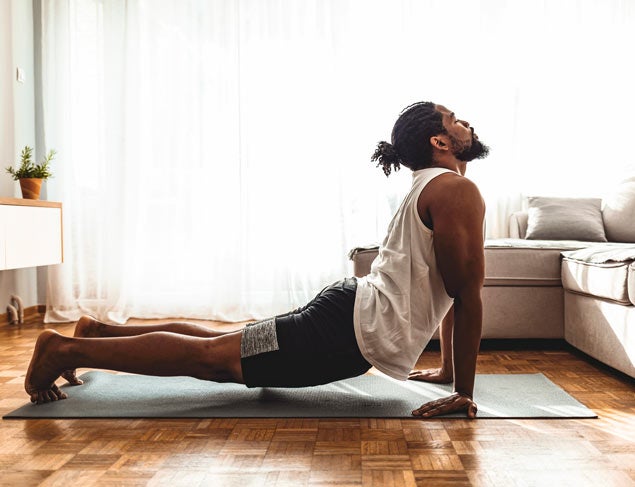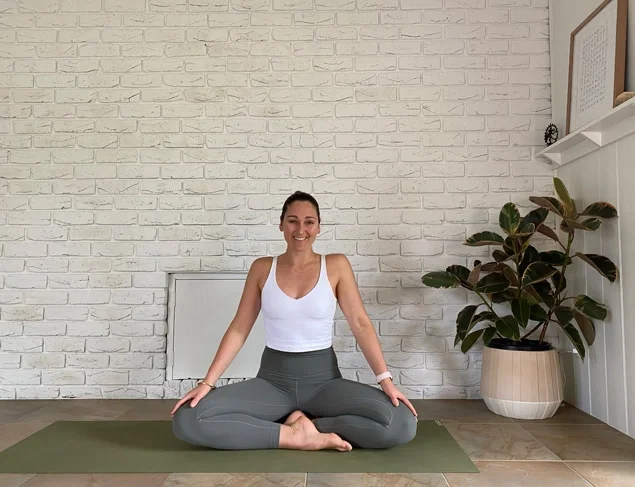Can you exercise with a cold or flu?

If you’re anything like me, you probably would prefer to minimise disruptions to your exercise routine. However, with winter around the corner and colds and flu not far behind, we might see a few interruptions over the cooler months.
Being prepared to keep yourself well and understand when it’s okay to return to the sporting field, the running track or the gym may help you stay on track after an illness.
The relationship between exercise and your immune system
Your immune system is basically your body’s defence against the unknown. It consists of a number of different immune cells and processes that fight off infection as well as keep damaged or foreign cells from causing damage in our body.
Your immune system is very clever - over time, it learns more and more so that it can stop infections from taking hold before they make you sick and it exists in a delicate balance that it self-regulates.

How does exercise affect the immune system?
Exercise is good for you, but can it also benefit your immune system? Dr Jill Gamberg shares her insights.
Moderate-intensity exercise is actually good for your immune system. It improves the levels of some of the immune system cells and substances that help fight off infection. After bouts of prolonged, very intense exercise though, your immune system can be slightly impaired.
Frequent colds and flu can be a sign of overexercising. But doing no exercise at all leaves you much more vulnerable to colds and flu.
Despite this, on the balance of things, regular exercise and physical activity are good for your overall health and if you do get sick, being fit and healthy likely reduces your risk of more severe complications.
Exercising when sick
For some people who have a common cold, they don’t actually feel that bad. So much so that they may wish to continue their usual activities.
In these cases, if you have common cold symptoms, like a runny nose or a mild sore throat without fever or generalised aches and pains, you can get back to exercise within a few days of feeling better. Even if you have a mild cold, you may feel okay doing some gentle to moderate activity.


Tips on staying well in self isolation
Have you found yourself having to self isolate? Get expert tips from Dr Nikki Stamp and Simone Austin on how to take care of you when you're in isolation.
However, if you have fever, aches and pains, a cough, shortness of breath or fatigue, wait until you’re fully recovered before jumping back in. When you do resume exercise, even if you were only off for a few days, it's a good idea to listen to your body and start slowly, gradually increasing your activity level.
Returning to exercise after COVID
COVID-19 has raised some specific questions about returning to exercise after you recover. This has mainly been centred around the effect that the virus can have on the heart. Although heart problems are still quite rare after infection, they can happen even in milder cases.
In addition, many people still report lingering symptoms like shortness of breath and fatigue that can hang around after they recover and impact their ability to exercise. Because of this, we recommend a fairly conservative approach to return to exercise after COVID. If in doubt talk with your doctor.
Once you’ve recovered, start your return to exercise nice and gently with gentle exercises like stretching and walking. Usually, week by week, you can start building up your exertion levels slowly until you’re back to where you started. Be patient with your body and don’t push too hard.
When to pull back
Whatever the illness you’ve recovered from, if you experience any of these symptoms, stop, rest and chat to your doctor or go to the nearest hospital:
- Pain or discomfort in the chest
- Dizziness or fainting
- Severe shortness of breath, especially if it persists once you stop exercising
If you’re back at it and you notice any of your cold or flu symptoms hanging around, or you generally feel worse you may also wish to think about slowing down and getting checked by your doctor.
related reads
Reviewed by the healthylife Advisory Board April 2022


